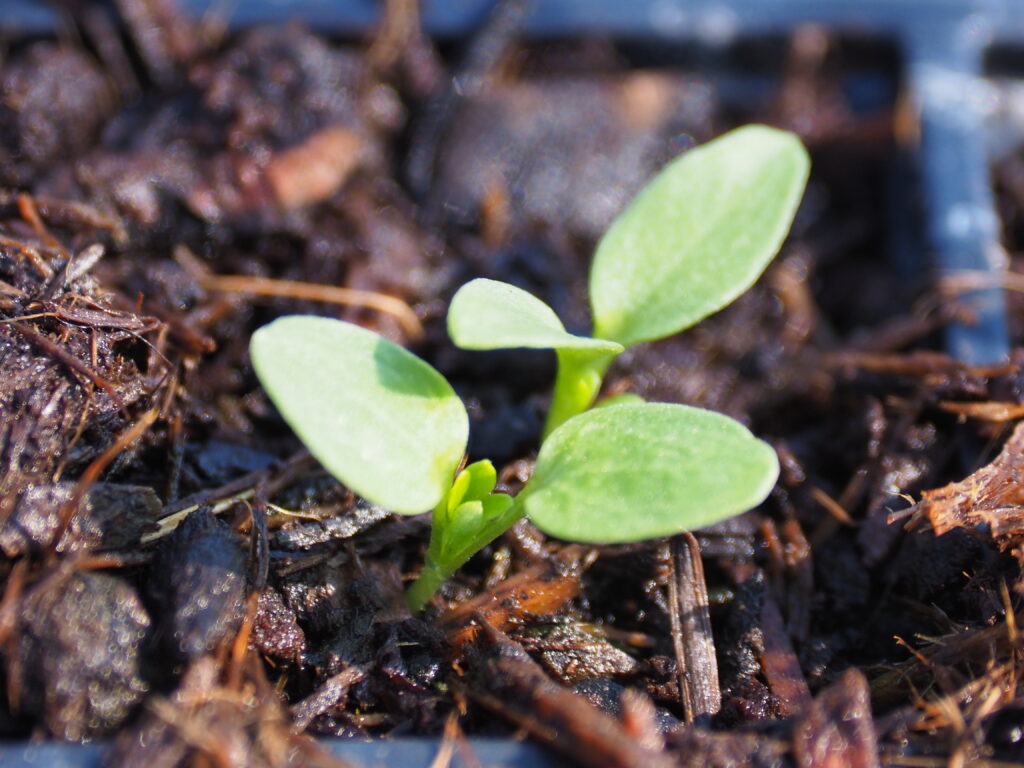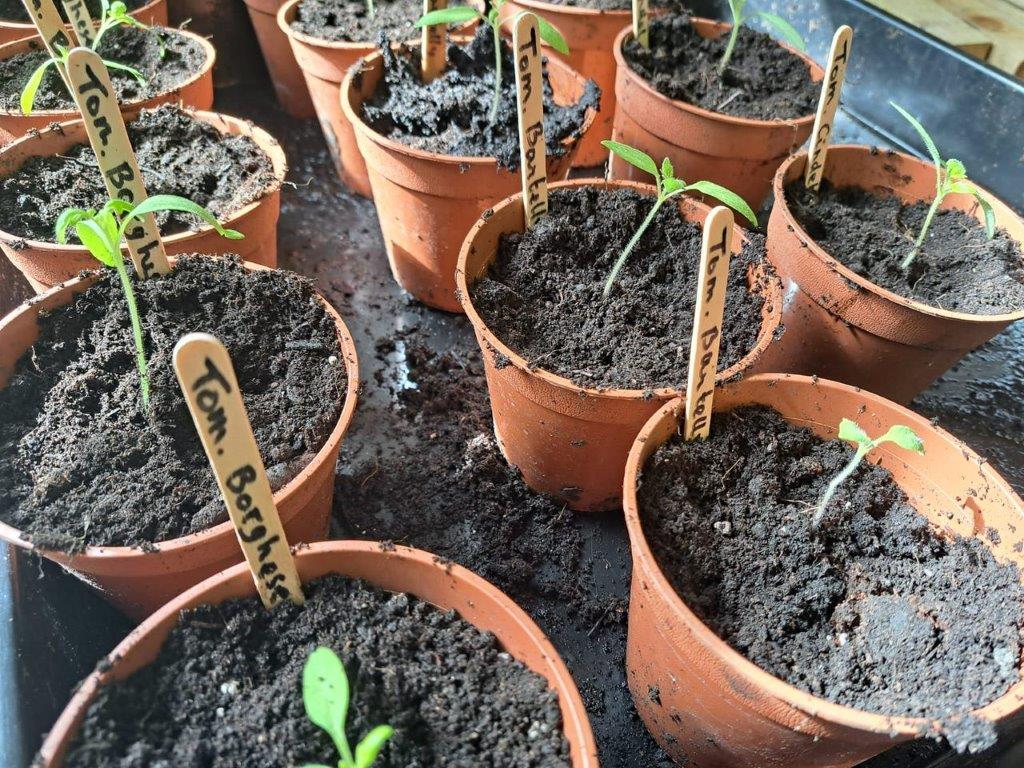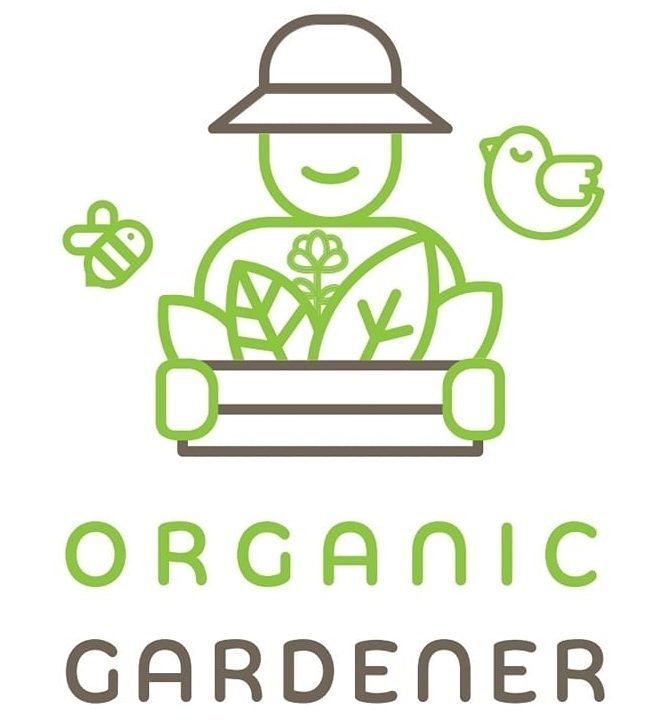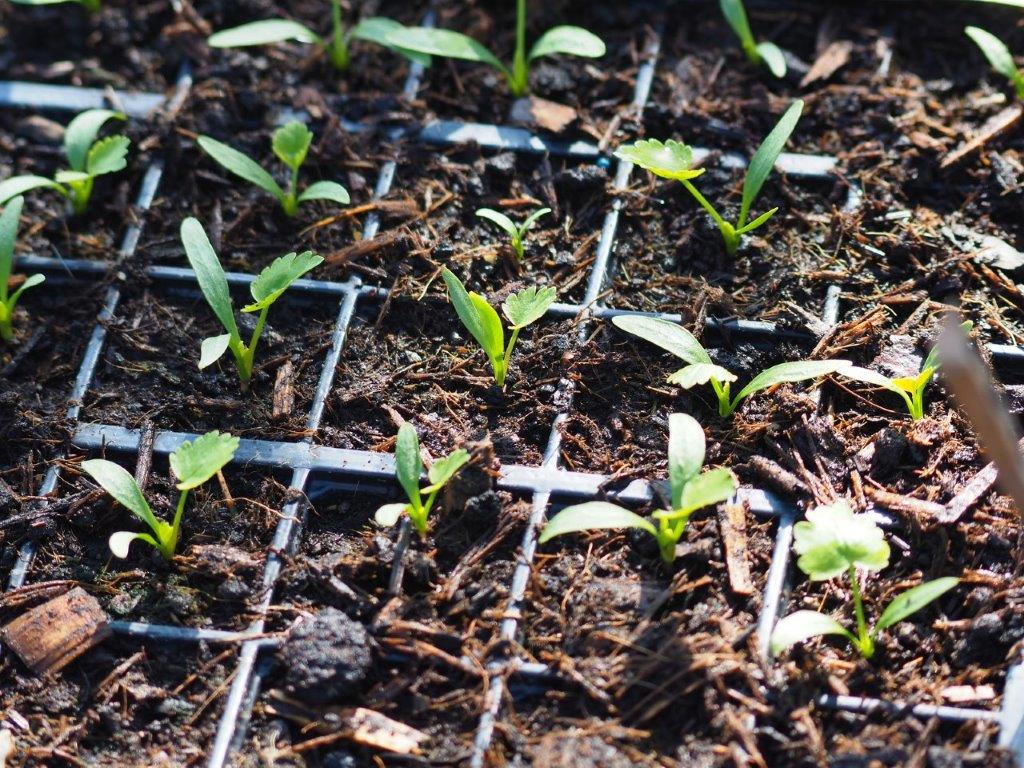The name itself reveals the essence: pre-sowing enables you to gain an advantage in cultivating your crops. Since pre-sowing takes place indoors, typically on the windowsill of a sunlit window, you can start planting earlier in the year. This often results in healthier plants and an earlier harvest. However, pre-sowing is more nuanced than it may seem, and not all plants are suitable for this method. For certain plants, especially considering the British climate, pre-sowing becomes a necessity.
The Advantages Of Pre-Sowing
Traditionally, seeds are sown directly where they are intended to grow. With pre-sowing, however, you first allow the plants to germinate indoors in a seed starter set or propagator. Once the plants attain sufficient strength and the weather proves mild, you can transplant them into the garden or outdoor vegetable planter. The advantage lies in the plants being more robust when moved outside, leading to more aesthetically pleasing growth. Another perk of pre-sowing is the ability to expedite your cultivation timeline.
Occasionally, pre-sowing is imperative. Due to the UK’s climate, certain plants necessitate pre-sowing. The cultivation duration for crops like celeriac extends to approximately 8 months, surpassing the length of the British summer. Without pre-sowing, harvesting before the summer’s end becomes unattainable. Ripening duration is also a factor; fruits such as peppers or bell peppers require sunlight to ripen and acquire a delectable flavour. Consequently, these plants need to be ready to produce fruits by early summer, allowing about three months for ripening in sunlight. Lastly, an often underestimated benefit: pre-sowing serves as a deterrent against birds consuming seeds before germination.
3 Tips for Successfull Pre-Sowing
- Choose compost suitable for growing seeds. Seeds and cuttings need less rich compost than seedlings. Our Moorland Gold Seed & Cutting compost is a fantastic soil to use and Soil Association approved for organic gardening.
- Opt for a south-facing window for optimal sunlight exposure. However, be cautious of intense spring sunlight, as it can rapidly generate excessive heat behind glass. On pleasant spring days, it’s advisable to temporarily relocate your plants to a cooler spot or shield them with cardboard or newspaper.
- Avoid sowing seeds too closely or too deeply. One centimeter is generally sufficient for small seeds, while a depth of three times the seed diameter usually proves effective.
- Ensure adequate moisture but steer clear of overwatering. Utilise a plant mister for watering until the plant has sprouted. Subsequently, water the plant from the bottom to encourage root growth. Nutrition is essential, but the same principle applies: moderation is key.


Extra Pre-Sowing Tips
Refrain from placing your crops outdoors prematurely. Exercise patience (we are aware this is the biggest challenge). Mid-May serves as a suitable guideline, although certain crops can be moved outdoors earlier. Consult the seed packaging for guidance. Allow your plants to acclimatise to their new environment by exposing them to the outdoors briefly before transplantation. Cold frames and greenhouses are ideal for acclimatisation of your seedlings.
Due to the low winter sun angle, indoor plants often exhibit skewed growth. Plants naturally lean towards the sun. If you possess a sizable attic window with ample sunlight, it could offer a viable solution. Some gardeners also employ specialised grow lights to provide overhead light. However, reserve this method for plants that genuinely require pre-sowing, as excessive energy consumption could compromise the sustainability of your organic cultivation.
Commence pre-sowing at an appropriate time. Therefore, initiate pre-sowing not too early, but always as late as possible. Our seed sowing calendar provides insights into the ideal times for pre-sowing different crops.
Not All Crops Are Suitable For Pre-Sowing
Pre-sowing may not be advantageous for every crop. Certain plants, such as carrots, radishes, parsnips, and black radishes, do not fare well with transplantation. Root damage during transplantation is inevitable, causing your plants to exhibit slightly diminished performance for about a week after being moved outdoors.
Order Certified Organic Seeds
Avoid purchasing cheap seeds; instead, opt for high-quality seeds specifically developed for organic gardening and cultivation. This ensures seeds without harmful pesticides, contributing to a healthier soil. Our organic seeds are readily available for online orders through our website. Seeds are despatched within 1 to 3 working days throughout the UK. Feel free to reach out to us for more information about our organic seeds.


